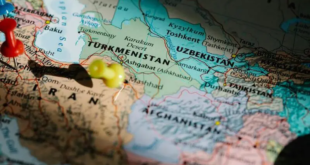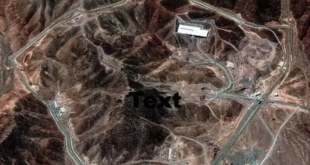 According to statements made Sept. 27 by the Turkish Minister of Energy Hilmi Guler, Ankara and Tehran plan to sign an accord this month on the exploitation of the natural gas reserves of South Pars on the southern Iranian coast.In a preliminary agreement concluded in July, it had already been agreed that Turkey’s state-controlled oil company would invest some $3 billion over seven years in the construction of operating equipment. In addition, Turkish and Iranian enterprises are supposed to develop joint ventures for the transport of the gas by way of a pipeline system that will extend to eastern Turkey.
According to statements made Sept. 27 by the Turkish Minister of Energy Hilmi Guler, Ankara and Tehran plan to sign an accord this month on the exploitation of the natural gas reserves of South Pars on the southern Iranian coast.In a preliminary agreement concluded in July, it had already been agreed that Turkey’s state-controlled oil company would invest some $3 billion over seven years in the construction of operating equipment. In addition, Turkish and Iranian enterprises are supposed to develop joint ventures for the transport of the gas by way of a pipeline system that will extend to eastern Turkey.
A branch of the new pipeline should also someday permit the transport of natural gas from Turkmenistan to eastern Turkey and from there to the EU, thus avoiding its having to transit Russian territory. For weeks now, Guler has explicitly stressed that the Turkish-Iranian deal does not only serve to help cover Turkey’s own growing energy needs, but should also be of benefit for the Nabucco pipeline project. The European Union project to build a high performance gas pipeline from eastern Turkey to the gates of Vienna has thus far had problems getting off the ground: among other reasons, because of uncertainty about supplies. Until now, binding supply agreements have only been concluded with Azerbaijan, which is already able to transport natural gas from Baku to Erzurum by way of a secure pipeline. In the long run, however, the Azerbaijani gas supplies are far from sufficient to keep Nabucco in operation at full capacity.
Attempts to conclude binding supply agreements with the major natural gas producing countries to the East of the Caspian Sea have thus far failed as a result of the resistance of Russia, which is actively striving to insure that natural gas from Central Asia is brought to the West by way of Gazprom’s transport system. An additional cause of the delays in the Nabucco project are the rivalries among the national energy companies directly involved in the project (above all, the Austrian company OMV and the Hungarian company MOL): all of which, moreover, are highly dependent upon Gazprom for supplies and under severely restrictive conditions.
The Nabucco project is based on the desire to guarantee the security of Europe’s energy supplies. In light of the increasing tendency of Russian authorities to pursue not only economic, but also political ends by way of energy exports and gas price policy, the diversification of suppliers – that is, reducing Europe’s dependency upon Russia – has become a second important motive of the project. During a recent visit to Turkey, the British Minster of Energy Malcolm Wicks even openly welcomed the planned Turkish-Iranian cooperation and the construction of a pipeline to transport Central Asian gas to Europe that would avoid crossing Russian territory.
Brussels, however, has been put in an embarrassing position by the agreement between Turkey and Iran. On the one hand, the agreement could provide new impetus to a Nabucco project that has thus far remained confined to blueprints; on the other, it threatens to create difficulties with Washington, which is interested in isolating Tehran economically and has threatened to apply sanctions to foreign investors investing in the Iranian energy sector. In late September, Under Secretary of State Nicholas Burns expressly urged the United States’ NATO ally Turkey not to break the united front against the Iranian uranium enrichment program and hence to “sacrifice” the South Pars project. Turkish Prime Minister Erdogan countered by noting that Turkey’s growing economy has to meet the virtual entirety of its energy needs with imports and that it is thus out of the question to break off contact with one of its principal suppliers. (Iran already occupies second place, behind Russia, among Turkey’s natural gas suppliers.)
Nonetheless, Turkey’s disregarding American requests for solidarity is not only to be explained by Ankara’s concerns about its future energy supplies. In preparing the South Pars production agreement, the Erdogan government has seized an opportunity to express its disappointment about American forbearance toward the Kurdish separatist movement in the North of Iraq. As far as its Kurdish policy is concerned, Ankara has come to feel that it is better understood by Tehran than by Washington.
 Eurasia Press & News
Eurasia Press & News

